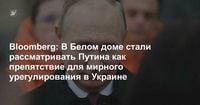As tensions escalate in the ongoing conflict between Russia and Ukraine, a significant diplomatic push is underway, with Western leaders uniting to demand an unconditional 30-day ceasefire. This ultimatum, set to commence on May 12, 2025, has been positioned as a critical juncture in the war, with the West confronting Moscow with a stark choice: either agree to the ceasefire or face severe sanctions.
The coalition of leaders, including Ukrainian President Vladimir Zelenskyy, German Chancellor Friedrich Merz, French President Emmanuel Macron, British Prime Minister Keir Starmer, and Polish Prime Minister Donald Tusk, convened in Kyiv on May 10, 2025, to discuss the terms of the ceasefire. Zelenskyy emphasized the necessity of a ceasefire without conditions, stating, "We agreed that from Monday, May 12, 2025, a full and unconditional ceasefire should begin for a minimum of 30 days. We jointly demand this from Russia. We know that the United States supports us in this."
Macron reinforced this message, warning that a new package of sanctions is ready should Russia refuse to comply. He stated, "If Russia does not agree, it will face a series of additional sanctions and increased support for Ukraine. A new package of sanctions is ready," highlighting the urgency of the situation.
Starmer echoed these sentiments, asserting, "If Putin speaks of peace seriously, he has an opportunity to show it. There are enough ifs and buts, conditions and reservations. We must remind ourselves that only one country started this illegal conflict, and that was Russia, and only one country is preventing a peaceful resolution of it, and that is Russia."
In a show of unity, Zelenskyy and the European leaders held a subsequent phone call with U.S. President Donald Trump, who supported their demands. The coalition's proposal outlines that Ukraine and its allies are prepared for a comprehensive ceasefire across all domains—land, air, and sea.
However, the Kremlin's response has been less than enthusiastic. Dmitry Peskov, the press secretary for President Vladimir Putin, indicated that Russia is not immediately prepared to react to the proposal from Kyiv. "We need to think about this. This is a new development. We have our own position," Peskov stated, reflecting the cautious stance of the Russian government.
Despite the Kremlin's hesitance, the coalition remains determined. Zelenskyy made it clear that the ceasefire must be unconditional, rejecting any prerequisites related to the cessation of Western arms supplies to Ukraine. He argued that such conditions only serve to prolong the conflict, asserting, "An unconditional ceasefire means without any conditions."
As the deadline approaches, Western leaders are keenly aware of the stakes involved. The coalition's strategy hinges on the belief that increased pressure on Moscow could lead to a change in its stance. "We see that Europe is opposing us, very openly, we feel it, we know it, and we are quite used to it," Peskov remarked, acknowledging the growing isolation Russia faces on the international stage.
The backdrop to these discussions includes a recently declared temporary ceasefire by Putin from May 7 to May 11, 2025, in honor of the 80th anniversary of Victory Day. However, this gesture was met with skepticism by Zelenskyy, who labeled it a "manipulation attempt" and called for a more substantial, long-term peace effort.
Political analysts suggest that the ultimatum may indeed force Putin's hand. Volodymyr Fesenko, head of the Center for Applied Political Studies "Penta," noted that while Putin may not be intimidated by the prospect of new sanctions, the desire to maintain dialogue with Western leaders, particularly Trump, could influence his decision-making. "For Putin, this prospect is very important. It is precisely this that needs to be used. The desire to conduct negotiations with Trump is Putin's weak spot," Fesenko explained.
As the situation continues to evolve, the international community watches closely. The potential for a ceasefire could mark a pivotal moment in the conflict, offering a pathway to peace that has thus far eluded both nations. Should the ceasefire take hold, it would not only provide a reprieve for the war-torn regions of Ukraine but also open the door for diplomatic negotiations aimed at a lasting resolution.
In the meantime, the coalition's leaders remain resolute in their demands for peace. The next few days will be crucial as they await Russia's response to their ultimatum. The world holds its breath, hoping for a breakthrough in a conflict that has caused immeasurable suffering and disruption.
As the clock ticks down to May 12, the question remains: Will Russia heed the call for peace, or will the specter of sanctions loom large over its future?

